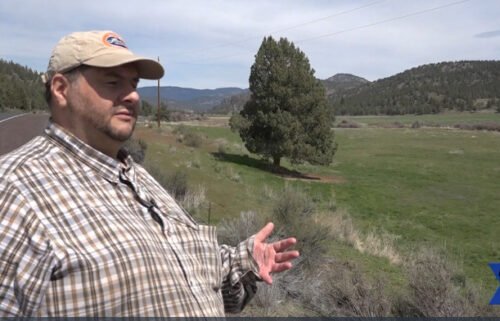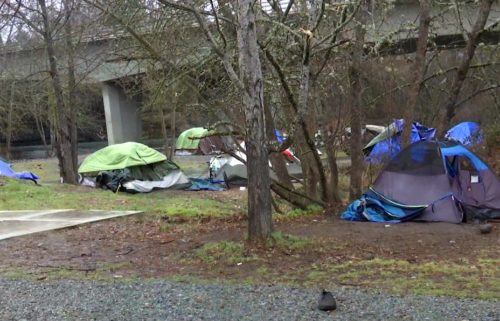Central Oregon county leaders worried about low response to Census
Good data 'helps us make the critical decisions,' commissioner says
BEND, Ore. (KTVZ) -- With Thursday being the last day to respond to the 2020 Census after a court ruling this week, Central Oregon county leaders have expressed concerns about potential lack of resources and representation, as self-response rates from citizens appear relatively low.
I looked at a chart found on the government's Census Website to get an idea just how low those numbers are.
The chart at around noon on Thursday showed about 63 percent self-response in Deschutes County, about 66 percent for Crook County and 54 percent for Jefferson County.
The Trump administration had called for the count to end Sept. 30, a month early, so it could produce data for congressional redistricting by year's end. A challenge to that move was cleared Tuesday by the U.S. Supreme Court, meaning the counting ended Thursday, though the online count will end at 3 a.m. Pacific time on Friday (midnight in Hawaii).
Much of the state and country has seen similar numbers, yet nearly 100 percent of the nation has been "enumerated," according to the Census Bureau, the rest through what's referred to the "non-response follow-up" -- census-takers visiting every household that hasn't responded, to try to ensure a complete and accurate count.
The once-a-decade census determines both funding and representation in government, as redistricting redraws district lines for federal and state legislative seats, based on the population.
Crook County Commissioner Jerry Brummer said both issues are equally important.
"Obviously, that's how we get our representation, you know, at the federal level, so that's really important to us," he said. "But also the funding, you
know -- they're both really important."
Brummer said much of the money apportioned by population goes toward health and mental health services.
"I think it's obvious, especially with this COVID situation, we're going to see more mental illness coming out of this -- you know, people being out of work and stuff," he added.
In Jefferson County, the issue is also on local officials' minds, as Jefferson County Commission Chair Kelly Simmelink explained how census results and data are critical to his job.
"It really helps me and my board, helps us make the critical decisions that we need to make for this county -- where we might need new schools, new clinics, new roads," he said.
Simmelink also said it helps with distribution of funds for programs like Medicare, HeadStart, the SNAP food program and more, as well as government representation.
"Everyone, I think, on the east side of the mountains has a concern in how we're represented, and obviously it represents a drawing of congressional, state legislative districts," he said. "So you know, that is a huge concern."
Simmelink was quick to point what he thinks is a primary reason for the lack of self-response, at least to the online aspect of the census count, in terms of what's often called the urban-rural "digital divide."
"Broadband issues are the probably the biggest key to it," Simmelink said.




